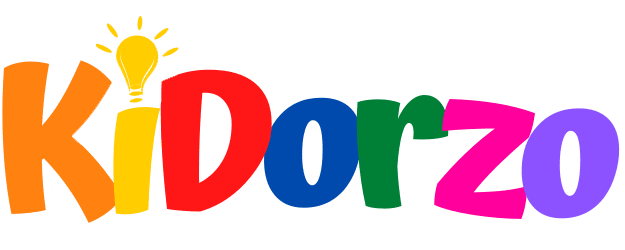Growth And Development Of Preschoolers
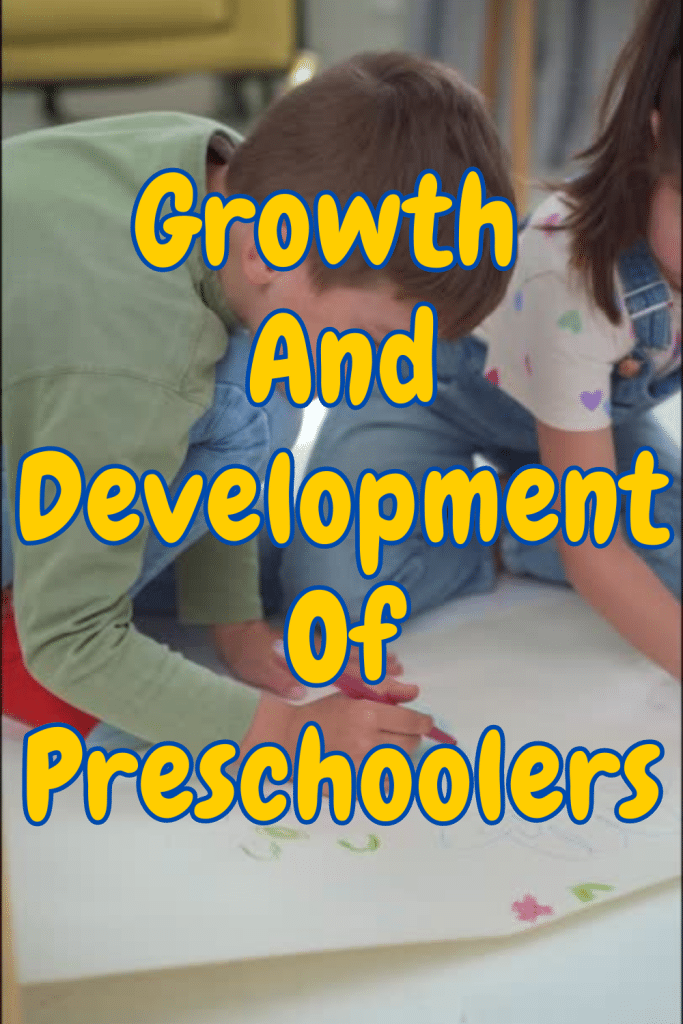
Are you a mother who is constantly seeking ways to enhance the growth and development of your preschooler?
Just like putting together puzzle pieces, every aspect is crucial in shaping the complete picture. Witnessing your children explore new skills and knowledge brings immense joy. In this article, we will delve into stimulating activities that can foster the growth and development of your preschooler.
From scissor practice and letter crafts to popsicle stick activities and teaching about fruits and vegetables, alongside life science and animal projects, we will also touch upon social development activities. These engaging activities are specially designed to provide your little one with a head start in life.
Let’s dive deeper into how these activities contribute to the growth and development of preschoolers.
Key Takeaways for Growth And Development Of Preschoolers
- Preschool activities such as scissor practice, crafting, and letter recognition help improve fine motor skills and encourage creative expression.
- Teaching fruits and vegetables to preschoolers can be made enjoyable through taste testing, painting, and visiting farms, and can help promote healthy eating habits.
- Life science and animal projects can enhance exploration, creativity, and fine motor skills in preschoolers.
- Social development activities such as team sports, physical activities, and pretend play can promote emotional growth and social behaviors.
Preschool Scissor Practice
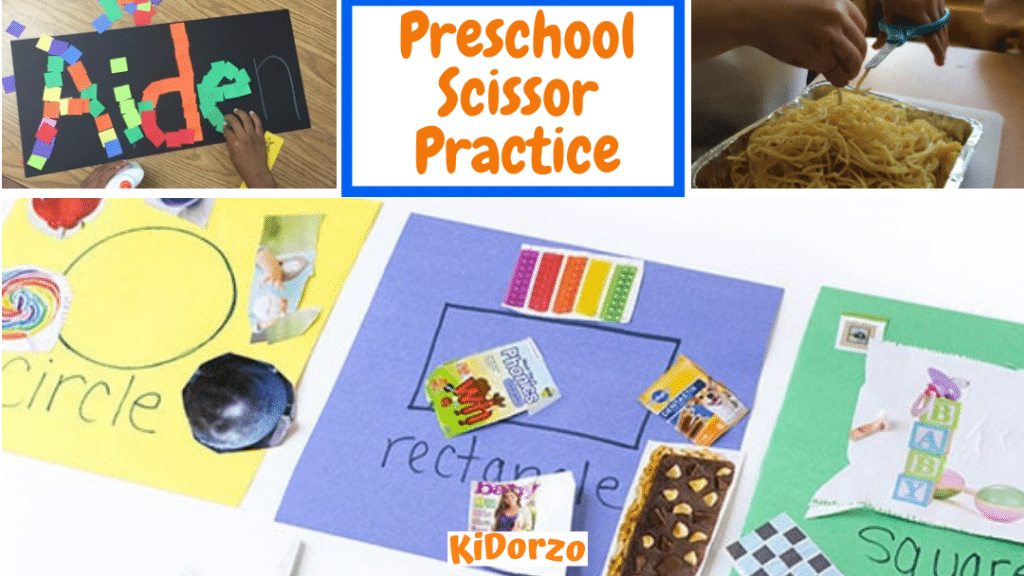
As a mother, you can take advantage of your toddler’s curiosity about scissors to enhance their fine motor skills. With proper supervision, you can turn scissor practice into a fun learning experience. Start by getting the right pair of scissors that fit their hand size and preferences.
Don’t limit them to cutting paper – let them practice on different materials like playdough. Help them out in the beginning by modeling the process and holding the material they need to cut. Encourage constant practice and provide different activities to keep them engaged. Try activities like a magazine shape hunt, name-spelling scissors art, or scissor skills spaghetti sensory play.
By engaging in these activities, your toddler will refine their motor skills, enhance their creativity, and learn important safety guidelines.
Check out these free preschool scissor practice printables for more details on each activity. Have fun learning with your little one!
Letter A Apple Craft Popsicle Stick
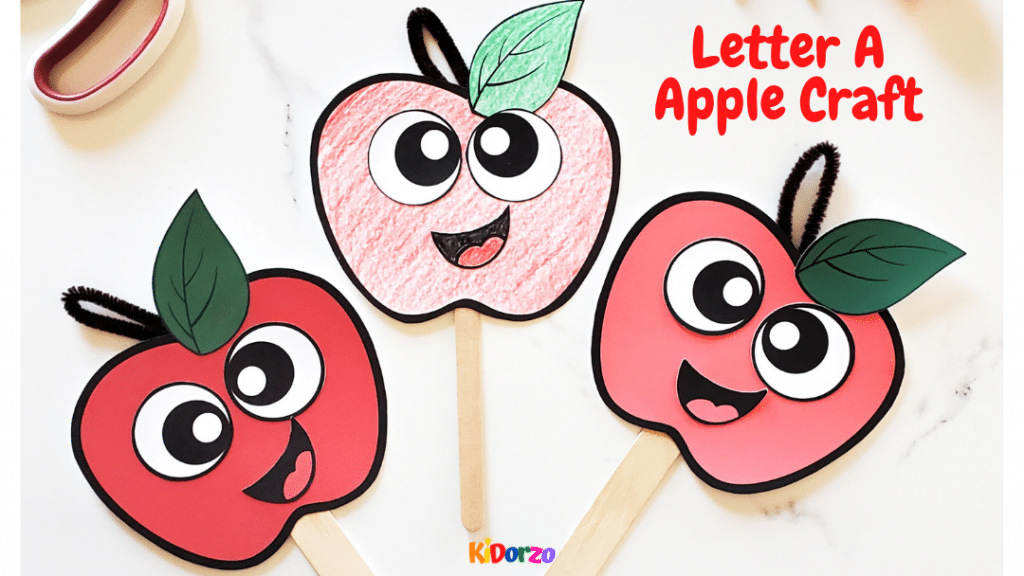
Are you looking for a fun and engaging craft activity to do with your toddler? Look no further! This letter A apple craft is perfect for preschoolers and kindergarteners.
With just a few supplies like scissors, glue, and a popsicle stick, you can create a cute apple puppet together. Not only will your little one have a blast making it, but they will also learn the letter A sound phonetically.
Download the free templates and get started on this exciting project today! For more details and step-by-step instructions, visit check out this Letter A Apple Craft.
Letter C Crafts for Toddlers
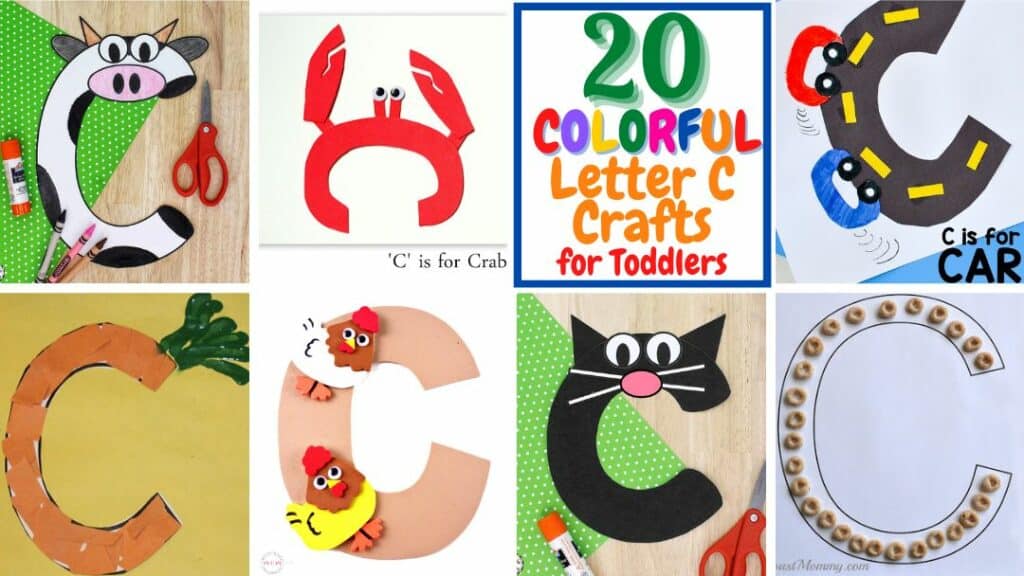
As a mother, you can make learning the alphabet letters fun and exciting for your toddler by engaging in these 20 colorful letter C crafts together. These crafts will not only help your toddler recognize the uppercase and lowercase letter C but also familiarize them with the sound of the letter when used in words.
For example, you can make a “C is for Car” craft by pasting a large black letter C on a sheet of paper and adding yellow strips to form a road. Cut out and glue down the small letter “Cs” for cars and add small circles for wheels. By doing these crafts, your toddler will have a blast while learning and retaining the knowledge of the letter C.
Check out the Letter C Crafts for more details on how to make these crafts!
Popsicle Stick Letter Activities
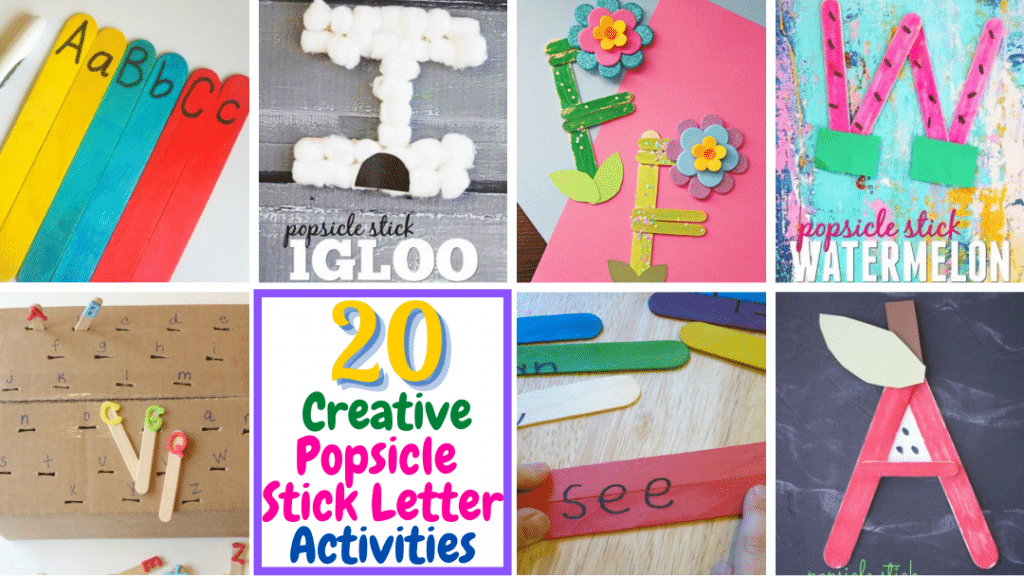
Are you looking for a fun and engaging way to teach your toddler their ABCs? Look no further than these creative popsicle stick letter activities! Together, you and your little one can create crafts like an A is for Apple popsicle stick or an H is for House popsicle stick.
Not only will they have a blast making these crafts, but they will also be learning and identifying letters at the same time. Your toddler will love the hands-on nature of these activities, and you will love watching them learn and grow.
For step-by-step guides and more details on each craft, check out these Popsicle Stick Letter Activities. Start making memories and learning letters with popsicle sticks today!
Teaching Fruits and Vegetables to Preschoolers
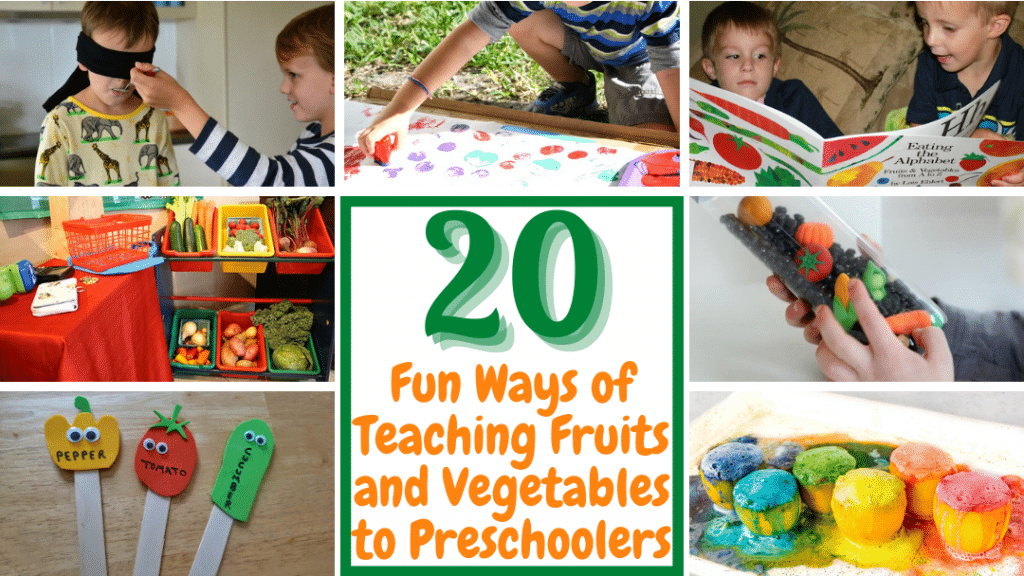
Teaching your toddler about fruits and vegetables can be fun and engaging. You can read books about fruits and vegetables together, set up a pretend fruit and vegetable stand, or even grow carrots from carrot tops. Flashcards, digital games, and taste tests are also great ways to introduce these healthy foods. Singing songs, creating art, and going on a visit to a local orchard can make the learning experience more enjoyable.
Engage your toddler in activities like a lemon volcano experiment, a fruit and vegetable hunt sensory bin, or a vegetable math game. Painting with fruits and vegetables, playing guessing games, and coloring pages can further enhance their understanding.
By participating in these activities, your toddler will not only learn about different fruits and vegetables but also develop important skills.
Join me in exploring these fun ways to teach fruits and vegetables to preschoolers!
Life Science Activities for Preschoolers
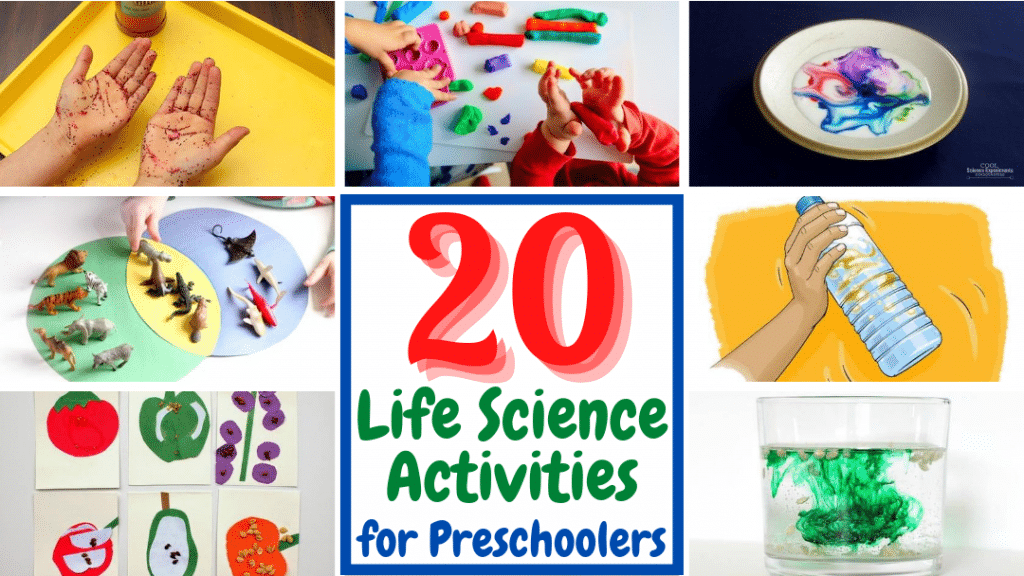
Explore and understand the world of plants, nature, and animals with your preschooler through these 20 amazing life science activities. Help your child identify plant parts, learn what dissolves in water, and discover which items sink or float. Teach them about the sun’s heat and light, and the importance of handwashing to eliminate germs.
Engage their creativity with clay modeling and color mixing, and let them witness the magic of an erupting volcano. Watch their fingerprints expand on a balloon and explore what happens when oil and water are mixed. Create a mini garden, grow bean sprouts, and make rice grains dance.
Let them help with gardening by creating eggshell seed bombs and mini terrariums. Sort animal toys in a Venn diagram and learn about different animal habitats. Finally, teach them about clouds and rain with a rain cloud-in-a-jar experiment.
Your toddler will have a blast while learning about the world around them. For more details on these activities, check out these Life Science Activities.
Fun Animal Projects for Preschoolers
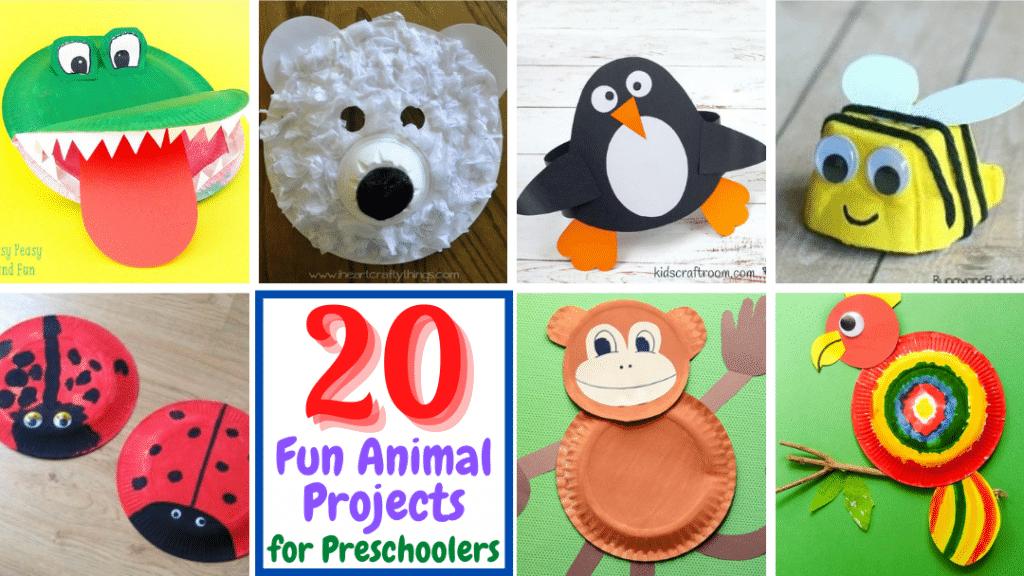
If your toddler loves animals, they will be thrilled with these fun animal art crafts that we have for you! You can create exciting crafts on jungle animals, forest animals, farm animals, and more! Plus, these crafts are perfect for preschoolers as they are easy to make.
You will only need materials already available in your home, such as paper plates, tissue rollers, and colored papers. So, why wait? Learn how to craft them and get started with some animal projects for preschoolers together with your toddler! They will have a blast creating these cute and colorful animal crafts while learning about different animals.
Check out these Fun Animal Projects for more details and step-by-step instructions!
Social Development Activities for Preschoolers
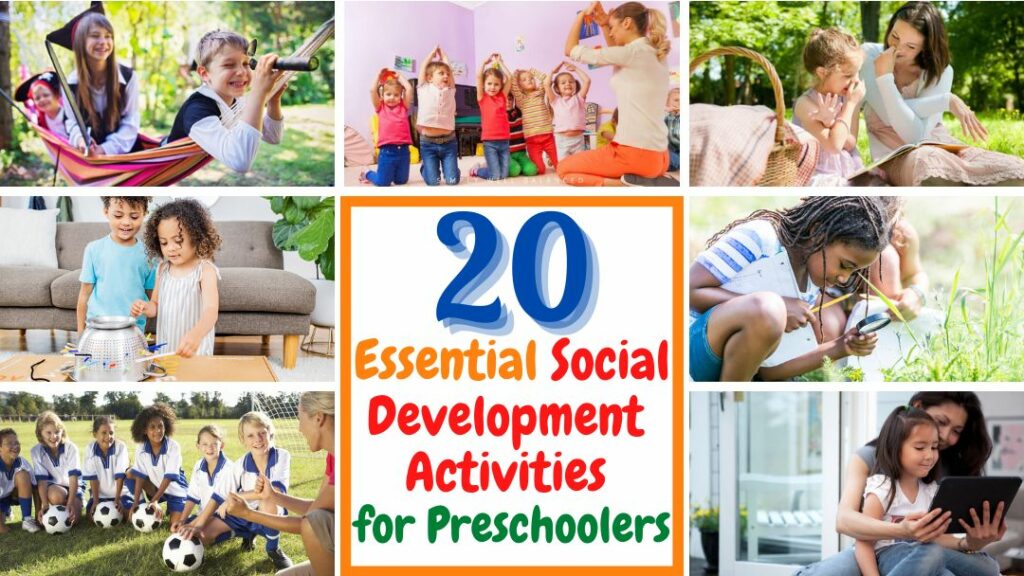
Engage in social development activities with your toddler to help them develop essential skills. Activities like scavenger hunts, team sports, building games, pretend play, gardening, playing with toy characters, and games like Simon Says and emotion charades can teach collaboration, problem-solving, teamwork, emotional understanding, and more. Playing catch, staring contests, and virtual playtime also contribute to social skill development.
Implement these activities to help your toddler thrive.
Visit our website for more details.
Conclusion
It’s been a journey of growth and development for preschoolers, and it’s truly amazing to witness.
From scissor practice to animal projects, they’re learning so much about the world around them.
As adults, we can take part in their education by being patient and caring with our guidance.
Each step they take brings us closer to understanding just how fast they learn and grow.
We mustn’t forget that time is fleeting though; what was once an apple craft popsicle stick today could be a life science activity tomorrow – a reminder that we must savor these moments as much as possible.
Frequently Asked Questions (FAQs)
Q: What are developmental milestones and why are they important?
A: Developmental milestones are a set of skills or abilities that children achieve at specific ages. These milestones are important because they provide a framework for monitoring a child’s growth and development. They help parents and caregivers to know what to expect at each stage and identify any potential delays or issues.
Q: What are some common developmental milestones for preschoolers?
A: Some common developmental milestones for preschoolers include physical development such as being able to balance on one foot, ride a tricycle, and dress themselves. They also include language skills like using sentences of 4 to 5 words, telling stories, and having conversations.
Q: How can I help my child reach their developmental milestones?
A: There are several ways you can help your child reach their developmental milestones. Provide a safe and stimulating environment for them to explore and play. Engage in activities that promote their physical, cognitive, and social development. Read books, play games, and encourage imaginative play to enhance their language and cognitive skills.
Q: What is the typical age range for preschoolers?
A: The typical age range for preschoolers is from 3 to 5 years old. This is often referred to as early childhood and is a critical period for the child’s overall development.
Q: How can I support my child’s language development?
A: You can support your child’s language development by talking to them frequently, reading books together, and encouraging them to ask questions. Engage in activities that involve listening, speaking, and vocabulary-building, such as singing songs, playing word games, and telling stories.
Q: What should I do if I suspect my child has a developmental delay?
A: If you suspect your child may have a developmental delay, it is important to consult with a healthcare professional, such as a pediatrician or child development specialist. They can assess your child’s development and provide guidance on appropriate interventions and support.
Q: Is it normal for preschoolers to have emotional ups and downs?
A: Yes, it is normal for preschoolers to have emotional ups and downs. Emotional development is a complex process, and during this age, children may experience a wide range of emotions. It is important to provide a supportive and nurturing environment for your child and help them learn healthy ways to express and manage their emotions.
Q: How can I encourage my preschooler to engage in imaginative play?
A: You can encourage your preschooler to engage in imaginative play by providing them with open-ended toys and materials, such as blocks, dolls, and dress-up clothes. Create a space for them to use their imagination, and join in their play to spark their creativity.
Q: What are some important social skills that preschoolers need to develop?
A: Some important social skills that preschoolers need to develop include sharing, taking turns, following rules, and resolving conflicts peacefully. Encourage your child to engage in cooperative play with other children to foster their social skills.
Q: Is it normal for preschoolers to have difficulty with certain sounds or stutter?
A: It is not uncommon for preschoolers to have difficulty with certain sounds or stutter. This is a normal part of language development. However, if you have concerns about your child’s speech or fluency, it is best to consult with a speech-language pathologist for further evaluation and guidance.
